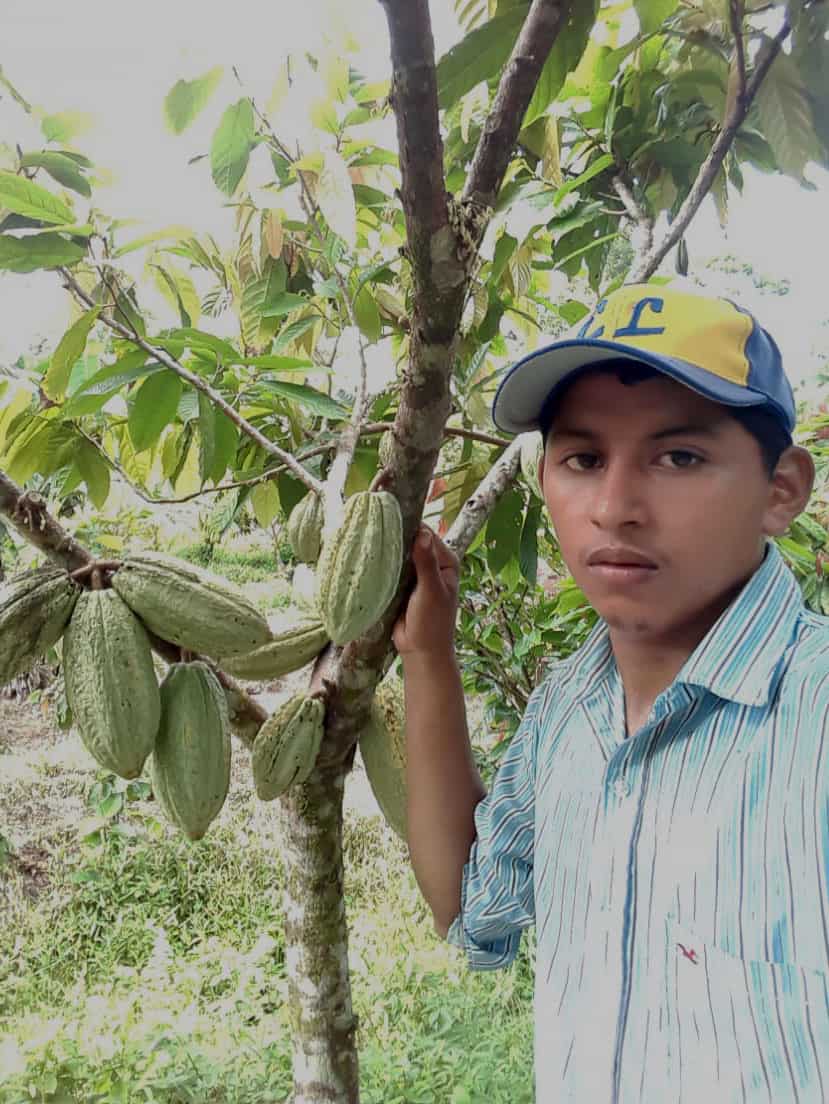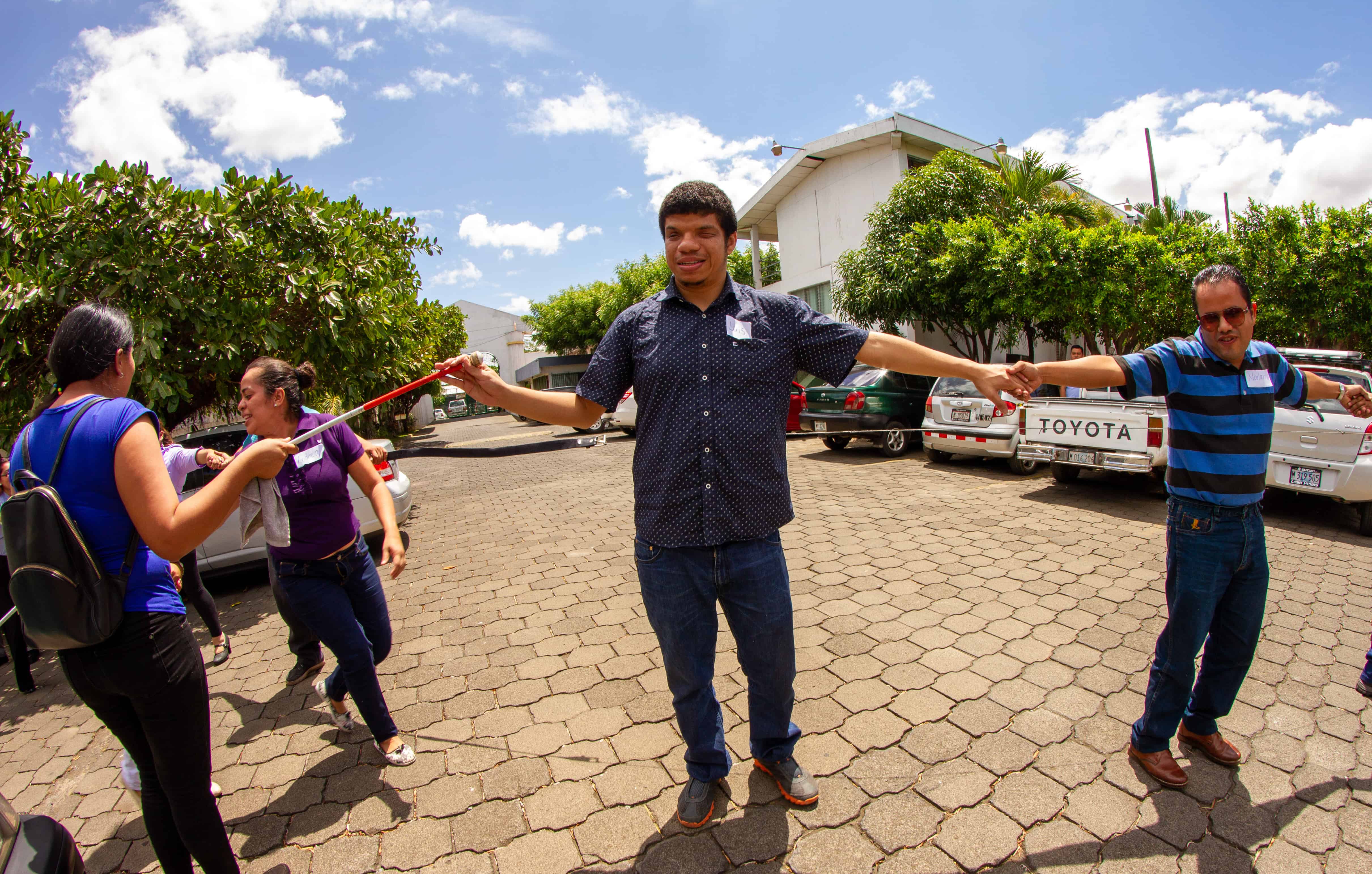Nicaraguan youth speak on technical education for World Youth Skills Day 2020
by Janey Fugate and Mirna Robleto
Set against the backdrop of a global pandemic and economic downturn, this year’s World Youth Skills Day arrives at a difficult time. Even before COVID-19, people aged 15 to 24 were three times more likely than adults to be unemployed, and those employed are more likely to work in the informal sector where they have typically less security and less income. Today, the growing number of unemployed youth is one of the international development sector’s biggest challenges.
Technical Vocational Education and Training centers, or TVETs, are a critical piece of the puzzle as youth transition to the workforce.
In Nicaragua, the Technical Vocational Education and Training Strengthening for At-Risk Youth (TVET SAY) program offers youth marketable, in-demand skills and support for an evolving work environment. Funded by the U.S. Agency for International Development, TVET-SAY has built a network of private sector companies allied in bringing more opportunities to the country’s youth, has fostered enabling environments for youth employees with disabilities and strengthened TVET centers’ capacities in regions of the country where unemployment is high.
In recognition of World Youth Skills Day, a group of TVET-SAY youth speak on the value of technical education as a way to cultivate agency, economic independence and stability.
Miguel Pineda
“[Before] I did everything experientially, but knowing how other producers work I realized that things can be improved, I was encouraged to start a stage of development and growth.”
Miguel Pineda, a young farmer, enrolled with 34 other youth in TVET-SAY’s courses in coffee and chile production. Chiles de Nicaragua, which supplies chiles to Tabasco, partnered with TVET-SAY to offer technical skills trainings to youth who had the interest and drive to become chile suppliers for the company. Symbiotic relationships like these are a cornerstone of TVET-SAY’s approach to youth skill building and private sector engagement.
Yadira Raquel Quiñonez
“With this support, we are going to share the idea of entrepreneurship, so that young people believe in themselves. I also plan to employ a young person and pay that support forward,” says Yadira, one of the project’s first scholarship recipients to enroll in a technical education program.
Earlier this year, TVET-SAY hosted a start-up pitch competition for 25 youth, and Yadira presented her shoe business idea. She was one of the winners, receiving in-kind support for her venture. Now, she has her sights set on becoming a regional shoe distributor in Bluefields and on employing other young people like herself. Creating spaces where youth can test their skills, learn to present ideas compellingly and receive feedback is a goal of TVET-SAY’s.
Kevin Hooker
“I never thought I would achieve it, to be able to work for myself and offer employment to others, I could not have achieved it without the support of the project.”
Kevin Hooker, a scholarship recipient and graduate of the Automotive Mechanics Technical course, participated in a business program with TVET-SAY and now owns “Bajo la Luz,” a motorcycle repair shop in Bluefields. Because TVET institutions often do not provide vulnerable youth with appropriate technical and soft skills that align with employment opportunities, TVET-SAY has worked to strengthen Nicaragua’s centers so they can provide youth like Kevin with access to quality training, job placement services and business management courses.
Juan Luis Sevilla
“The people without disabilities, not for discrimination but for lack of knowledge, they don’t know how much potential we have. …we have the responsibility to bring awareness to people at the different companies so that they eliminate the attitude barrier that prevents [disabled youth from getting hired].”
Born with glaucoma, a condition that eventually left him blind, Juan Luis has worked harder than most of his peers for the same opportunities. While studying at a university, he connected with TVET-SAY and took a course to become certified as a community counselor to help people with disabilities find employment. Juan Luis has also given presentations and trainings for the Nicaraguan Network for Technical Education (RENET), a network of companies, TVETs, universities and other organizations dedicated to building more inclusive professional environments for youth that TVET-SAY launched.
Griselda Gonzalez
“Thanks to the Project [TVET-SAY], I had the opportunity to visualize my path and motivate myself to start. For people with small businesses this helps to have new knowledge and it’s a way to mitigate the violence in our area and overcome.”
Griselda González graduated from TVET-SAY’s Basic Technical Course in Small Business, bolstering her skills and she’s taken over managing her family’s pharmacy business. Since the project started, TVET-SAY has reached over 1000 youth like Griselda with scholarships through the education centers, public-private partnerships, and other initiatives. More than 3000 youth have received soft skills training.





